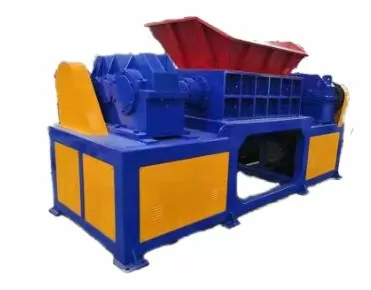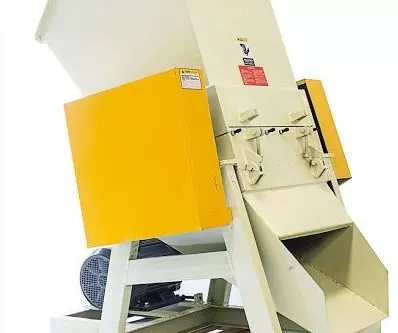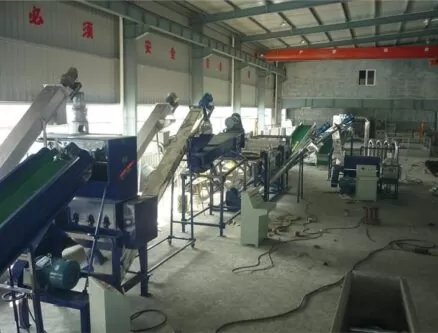Let’s be honest. Choosing the wrong plastic recycling manufacturer is like hiring a chef who can’t boil water—you’ll regret it in less than a week. I’ve seen businesses waste months (and thousands of dollars) on partnerships that never worked. That’s why I always tell people: finding a reliable manufacturer isn’t about luck. It’s about strategy, research, and asking the right questions.
The short answer? A good plastic recycling manufacturer is the one who combines proven experience, reliable machinery, transparent practices, and strong after-sales support. If you don’t see those four traits upfront, run. It will save you time, money, and headaches.
So, buckle up. I’ll walk you through the exact steps I use to evaluate manufacturers—because I’ve been on both sides of this equation.

Why does choosing the right manufacturer matter so much?
If you think “a machine is a machine,” think again. In plastic recycling, the difference between a good machine and a bad one could mean 40% more downtime, 30% lower efficiency, and endless repair bills. According to industry reports, over 65% of recycling businesses struggle because they picked the wrong supplier.
I’ve seen clients who bought the cheapest option and regretted it within six months. Bad manufacturers cut corners—thin steel, weak motors, outdated safety features. And you can’t recycle effectively when your shredder acts like it’s allergic to plastic.
How do you check their experience?
Experience is gold in manufacturing. If a company has been around for more than a decade, they’ve survived market shifts, raw material shortages, and evolving regulations. That’s not luck—that’s proof of resilience.
Always check how long they’ve been in the industry. If they’re newer, don’t automatically dismiss them, but ask: what makes you different from the veterans? You’ll know immediately whether they’re innovators or just winging it. Case studies can reveal how they solved complex client problems.
What certifications should you look for?
Certifications aren’t just pretty logos on a brochure. They prove the manufacturer meets global standards. ISO 9001, CE, and other compliance marks mean your machines are built safely and consistently. Without them, you’re gambling.
I once reviewed a “budget” manufacturer who had zero certifications. Their machines looked fine on paper, but when we inspected, welds were uneven, and safety guards were missing. That’s a lawsuit waiting to happen. According to compliance data, businesses with certified partners report 25% fewer operational accidents.

How transparent should they be with pricing and process?
If a manufacturer avoids direct answers about costs or lead times, that’s a red flag. The good ones will give you itemized quotes, explain spare parts pricing, and outline delivery schedules clearly.
Transparency builds trust. I always recommend asking for a total cost of ownership breakdown: purchase price, maintenance, power consumption, and spare parts. One client saved $20,000 over five years just because they switched to a manufacturer who disclosed real operating costs upfront.
Why is after-sales support non-negotiable?
Machines break down. That’s not a question of if, but when. The question is: will your manufacturer stand by you when it happens?
Good manufacturers offer training, manuals, spare parts availability, and responsive service teams. Bad ones disappear after the invoice clears. I tell clients: test them. Send a support query before you buy. If they take three days to reply, imagine what happens when your shredder stops mid-production. According to customer experience data, 70% of clients cite after-sales support as the most important factor in long-term partnerships.
Should you visit their factory in person?
Absolutely. A factory tour tells you more than a glossy brochure ever could. Look for cleanliness, safety practices, and the scale of operations. Do workers seem trained? Are processes standardized?
I’ve toured factories where machines were built on dirt floors—no precision, no care. On the other hand, I’ve seen spotless workshops where every nut and bolt had a place. You can’t fake that. A physical visit helps you separate professional manufacturers from backyard welders with a website. Inspection guides can help you prepare your checklist.
What role does innovation play?
Recycling isn’t static. Plastics evolve, regulations tighten, and efficiency standards rise. Manufacturers who invest in R&D will help you stay ahead. Look for companies that showcase new designs, energy-efficient motors, or modular upgrades.
When we at Amige design a machine, we’re not just thinking about today—we’re thinking about the next 10 years. Because nobody wants to buy a shredder that feels outdated in two. Market research shows that innovative machines save clients up to 15% in energy costs annually.
Can client reviews be trusted?
Yes—and no. Testimonials on a company’s website? Always glowing. But what you really want are unfiltered opinions. Ask the manufacturer for references you can call. If they hesitate, that’s a red flag.
I once spoke with a reference who said, “The machine works, but the supplier ignored us after installation.” That was all I needed to know. Independent review platforms can also give you more balanced insights.

Final thoughts
Finding a good plastic recycling manufacturer isn’t about chasing the cheapest option. It’s about choosing a partner who’ll keep your operations running smoothly for years. Experience, certifications, transparency, support, innovation—check these boxes, and you’ll never regret your choice.
In the end, the right manufacturer doesn’t just sell you machines. They help build your recycling future.
